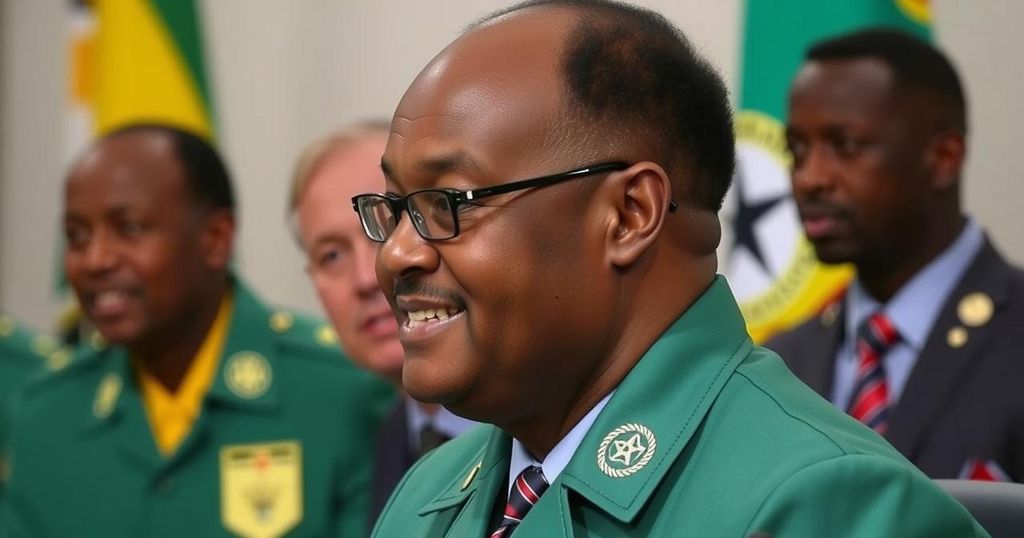Uganda’s military operation in the DRC faces scrutiny amid claims of double dealing as troops combat the ADF, a deadly rebel group with ties to the Islamic State. While Operation Shujaa has made progress in displacing the ADF, allegations suggest Uganda may be secretly aiding another rebel faction. The mission, while securing some areas, is also tied to economic interests, particularly concerning trade routes and natural resources.
Three years following the incursion of Ugandan troops into the eastern Democratic Republic of Congo (DRC) to combat rebels affiliated with the Islamic State, the results of their mission appear varied. Serious allegations have emerged suggesting that Uganda may be covertly aiding another rebel faction in the DRC, casting doubt on the legitimacy of its efforts. Launched in collaboration with Congolese forces, Operation Shujaa has reportedly succeeded in displacing the Allied Democratic Forces (ADF) from various strongholds near the Ugandan border. The ADF, one of the deadliest armed groups in the region, was responsible for approximately 1,000 fatalities in 2023 alone, according to United Nations estimates.
In several areas of the eastern DRC, peace has notably improved, with local residents experiencing a gradual return to normalcy. For instance, the city of Beni has lifted its curfew, permitting safe movement between Beni and Kasindi without armed protection. As stated by a member of local civil society, “In this area, progress has been made, even though the massacres have not stopped.” The ADF has been displaced from crucial areas like Rwenzori and the highly volatile region known as the “triangle of death,” which includes Oicha, Kamango, and Eringeti. Educational institutions in these locations have resumed operations, and significant ADF leaders have been either killed or captured, diminishing the group’s operational capacity. Brigadier General Felix Kulayigye, the spokesman for the Ugandan military, articulated, “Their ability to cause harm has been degraded.”
However, despite these security advancements, the ADF continues to pose a significant threat, having expanded into formerly unaffected regions. The group’s activities have shifted westward from Beni towards areas in Ituri province, while it has also made inroads into Tshopo province, where it reportedly killed five individuals. A diplomatic source analyzed this situation by noting that the lack of troop containment post-ADF engagement allowed these rebels to disperse and rekindle their attacks in new locales.
Heightened regional tensions have arisen due to Uganda’s involvement, with criticisms suggesting that its commitment to eradicating the ADF may be secondary to its own strategic interests. Reports by UN experts have accused Uganda of clandestinely endorsing the M23, a Rwandan-backed rebel group in the DRC, alleging that cross-border movements and meetings have taken place under Ugandan oversight. While Uganda has denied these accusations, DRC President Félix Tshisekedi demands transparent evidence to ascertain Uganda’s genuine intentions. “It’s almost as if their only priority was to push the threat further away from their zone of interest,” remarked Reagan Mirivi, a researcher for the Congolese think tank Ebuteli.
Uganda’s Operation Shujaa embodies not only a military endeavor but also an economic strategy aimed at the security and development of its interests in the region. It has enabled the Ugandan government to oversee infrastructure projects and safeguard its oil initiatives: endeavors deemed vital for sustaining economic growth. Alongside this, the burgeoning influence of Rwanda over the M23 rebels poses a challenge to Uganda, compelling it to sustain strong ties with Kinshasa while preventing Rwandan dominance.
In conclusion, Uganda’s military operations in the DRC exhibit a dual focus on countering security threats and advancing economic interests. The strategic balancing act involves ensuring access to profitable trade routes, especially in gold, while navigating complex regional dynamics marked by power struggles with neighboring countries. Ultimately, while some progress has been made in combating the ADF, the overarching motives and implications of Uganda’s involvement remain subjects of significant scrutiny.
Uganda’s military mission in eastern DRC, particularly Operation Shujaa launched to combat the Allied Democratic Forces (ADF), highlights the complexities of regional security and economic dynamics in Central Africa. The ADF has, for years, been a key player in violence and instability in the region, with links to terrorist organizations and significant impacts on local populations. In addition to military efforts against the ADF, Uganda’s actions are intertwined with its economic ambitions, particularly regarding natural resources and trade routes in DRC, which have direct implications for Uganda’s economic viability.
In summary, Uganda’s military involvement in the DRC through Operation Shujaa illustrates a pursuit of both enhanced security and economic interests. While there are indications of military success against the ADF, allegations of Uganda’s support for other armed groups complicate the narrative, raising questions about intentions and priorities. The intertwining of security and economic considerations underlines the geopolitical complexities in this region, necessitating vigilant monitoring as tensions continue to evolve.
Original Source: www.rfi.fr






